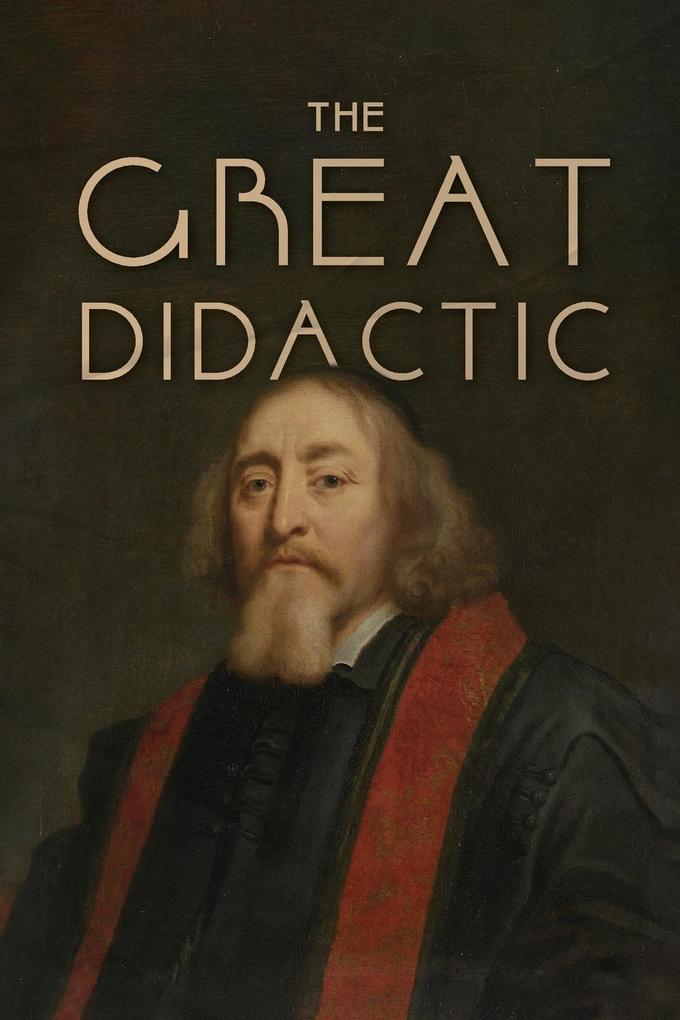
Zustellung: Mi, 25.06. - Mo, 30.06.
Versand in 2 Wochen
VersandkostenfreiBestellen & in Filiale abholen:
The Great Didactic: A Visionary Blueprint for Universal Education and Lifelong Learning
John Amos Comenius (1592-1670) was a Czech philosopher, educator, and theologian, often called the "Father of Modern Education" for his groundbreaking ideas about universal schooling and pedagogical reform. Born in Moravia (now part of the Czech Republic), Comenius experienced personal hardships and religious persecution, which shaped his commitment to education as a means of improving human life. He advocated for broad, systematic, and compassionate instruction accessible to all children, regardless of social class, gender, or nationality. His influence on educational theory, with an emphasis on sensory learning and moral development, has endured for centuries and laid the foundation for many modern educational practices.
The Great Didactic, written in the mid-17th century, presents Comenius's bold and comprehensive vision for the organization and purpose of education. Advocating for a methodical, lifelong approach to learning that harmonizes intellectual, moral, and spiritual development, Comenius outlines principles that remain strikingly relevant today. He envisions education not merely as the transfer of knowledge, but as the cultivation of wisdom and virtue aimed at the betterment of individuals and societies. With its profound insights and humane ideals, The Great Didactic stands as a seminal work in the history of educational thought and a timeless guide for reformers and educators.
John Amos Comenius (1592-1670) was a Czech philosopher, educator, and theologian, often called the "Father of Modern Education" for his groundbreaking ideas about universal schooling and pedagogical reform. Born in Moravia (now part of the Czech Republic), Comenius experienced personal hardships and religious persecution, which shaped his commitment to education as a means of improving human life. He advocated for broad, systematic, and compassionate instruction accessible to all children, regardless of social class, gender, or nationality. His influence on educational theory, with an emphasis on sensory learning and moral development, has endured for centuries and laid the foundation for many modern educational practices.
The Great Didactic, written in the mid-17th century, presents Comenius's bold and comprehensive vision for the organization and purpose of education. Advocating for a methodical, lifelong approach to learning that harmonizes intellectual, moral, and spiritual development, Comenius outlines principles that remain strikingly relevant today. He envisions education not merely as the transfer of knowledge, but as the cultivation of wisdom and virtue aimed at the betterment of individuals and societies. With its profound insights and humane ideals, The Great Didactic stands as a seminal work in the history of educational thought and a timeless guide for reformers and educators.
Produktdetails
Erscheinungsdatum
15. Mai 2025
Sprache
englisch
Seitenanzahl
322
Autor/Autorin
John Amos Comenius
Verlag/Hersteller
Produktart
kartoniert
Gewicht
431 g
Größe (L/B/H)
229/152/17 mm
ISBN
9781667305851
Bewertungen
0 Bewertungen
Es wurden noch keine Bewertungen abgegeben. Schreiben Sie die erste Bewertung zu "The Great Didactic" und helfen Sie damit anderen bei der Kaufentscheidung.









